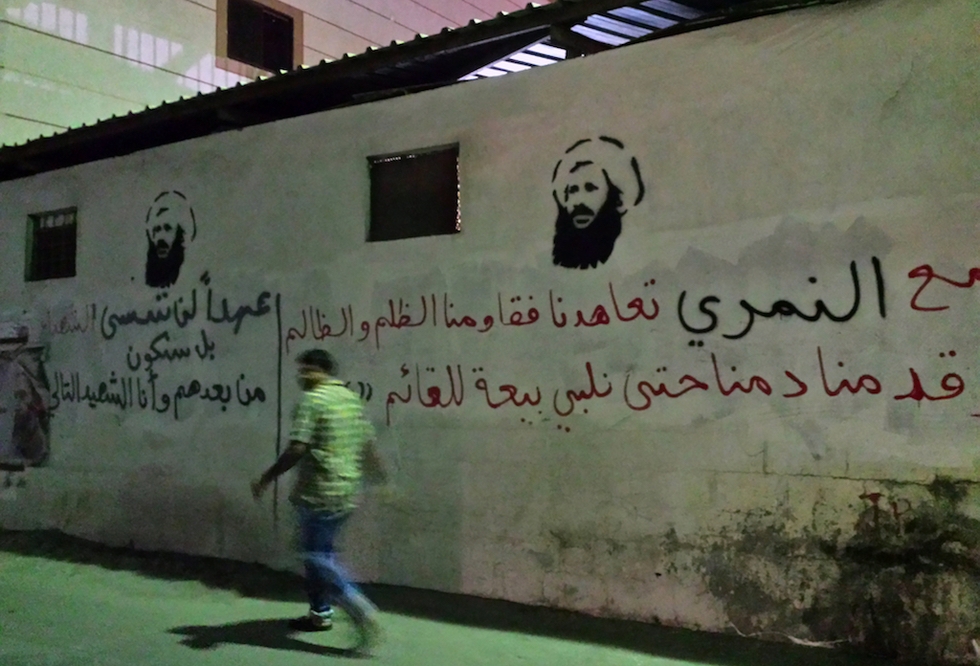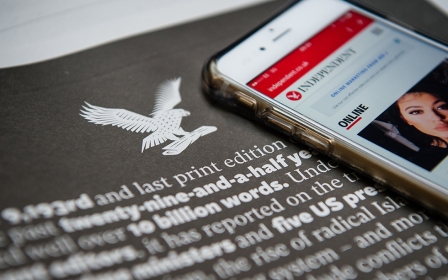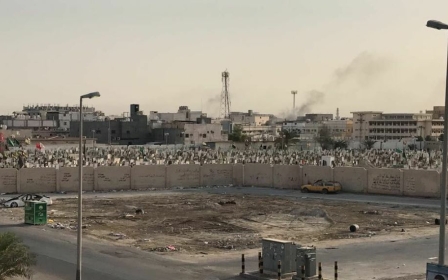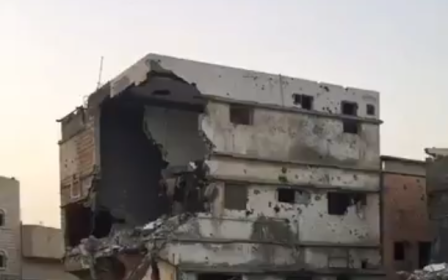Canada probes possible Saudi use of its equipment in eastern crackdown

Canada warned on Saturday that it was reviewing reports that Saudi Arabia is using Canadian armoured vehicles in a crackdown in the Sunni-ruled kingdom's Shia-majority east, which has seen numerous civilians and security personnel killed.
"We are looking at these claims very seriously ... and have immediately launched a review," Prime Minister Justin Trudeau, speaking in French, said during a visit in central Canada.
The Globe and Mail reported earlier that light armoured vehicles sold by Canada to Saudi Arabia had been used against Shia civilians in a major operation that left several people dead in the town of Awamiya in Eastern Province.
Experts told the newspaper that vehicles appearing in photos and videos of the Saudi operations were Gurkha RPVs produced by Terradyne Armored Vehicles near Toronto.
Earlier, a spokesman indicated that Foreign Minister Chrystia Freeland was "deeply concerned about this situation and has asked officials to review it immediately".
"If it is found that Canadian exports have been used to commit serious violations of human rights, the minister will take action," said spokesman John Babcock.
"The government is actively seeking more information about Saudi Arabia's current efforts to deal with its security challenges, the reports of civilian casualties, and the reports that Canadian-made vehicles have been used by Saudi Arabia in its current security operations," he said in a statement.
"Canada will review all available information as it determines an appropriate course of action."
Babcock said Ottawa had shared its concerns with Saudi Arabia, demanding that "its internal security operations be conducted in a manner consistent with international human rights law".
If it is found that Canadian exports have been used to commit serious violations of human rights, the minister will take action
- John Babcock, Foreign Ministry spokesman
At least five people were killed in Awamiya during the week, activists and a family member said on Thursday, as security forces continue an operation to flush out suspected Shia militants that started on 26 July.
Saudi interior ministry spokesmen could not immediately be reached by telephone for comment on the reports by community and political activists on social media about the violence in Awamiya.
The area, part of the oil-producing Qatif province where some of the country's Shia Muslim minority live, has seen unrest and occasional armed attacks by suspected militants on security forces since the 2011 Arab Spring protests.
Residents of the town complain of marginalisation by the Sunni-led Saudi government, a charge Riyadh denies.
Activists who write on community websites and use social media said three local residents and two expatriate workers have died since the security operation began early on Wednesday when a column of armoured vehicles entered Awamiya.
Since May, workers have also been tearing down structures in the 200-year-old walled old town district of Almosara, in what officials say is a plan to deny militants places to hide.
Several policemen have been killed in attacks by militants since that demolition work began.
Since the security forces advanced into the town, residents have reported the sounds of extensive shooting and explosions.
It was not immediately clear if armed men wanted by the authorities had fired back at the security forces.
Controversial deal
The controversial $13bn contract to supply Riyadh with light armoured vehicles was struck by the previous Conservative government in Canada.
Trudeau's Liberal government has had to defend this contract against criticism that it may have violated Canada's export control rules that bar arms exports to countries with a poor human rights record and that prohibit using these weapons against civilians.
Freeland's predecessor, Stephane Dion, had stated in April 2016 that the government would halt or revoke the export licence for the military equipment if credible information showed it was being used inappropriately.
"We have contracts in which people commit to respect Canadian laws, the terms of the contract and Canadian values, and we expect these contracts to be respected," Trudeau said.
Earlier this week, Canada had already expressed concerns about the growing violence in Saudi Arabia, and urged Riyadh to "defuse tensions".
"All such challenges must be addressed in a manner that abides by international human rights law," the statement added.
New MEE newsletter: Jerusalem Dispatch
Sign up to get the latest insights and analysis on Israel-Palestine, alongside Turkey Unpacked and other MEE newsletters
Middle East Eye delivers independent and unrivalled coverage and analysis of the Middle East, North Africa and beyond. To learn more about republishing this content and the associated fees, please fill out this form. More about MEE can be found here.




